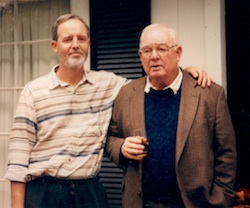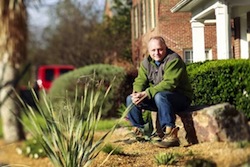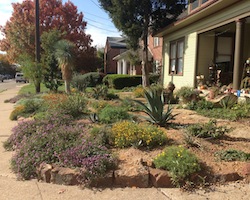Long before “global warming” was a household term, my father-in-law, Dr. Jack Inglis, would pronounce that it would all come down to our killing each other over water. The conversation-stopping concept seemed, at best, farfetched.
The respected Texas A&M ecology professor, who died 16 years ago in an ultralight crash, would have taken great interest in the United Nations report that was published Jan. 30. According to the report, climate change will disrupt the natural world and society, risking the world’s economy, the food and water supply and contributing to violent conflict. The report comes from an international panel of scientists — that same ilk who think the world is round and that species evolve.
Climate change and drought are indeed wreaking havoc. With 2011 the driest year on Texas record, Austin water reservoirs are little more than a third full. Parts of rivers have turned black. Millions of trees have died. Increasingly salty water is deteriorating fish and plant health. Texas is now fighting for its share of water from the great Rio Grande and Colorado rivers. A 1938 compact with Texas, Colorado and New Mexico is now in dispute, as is a 1944 treaty signed with Mexico. Deep South Texas farmers, rice farmers, fishing and some tourism industries — they’re all in trouble.
In an effort to conserve water, last legislative session Sen. Kirk Watson (D-Austin) and Rep. Dawnna Dukes (D-Austin) introduced bills that would prevent homeowner associations from restricting xeriscaping. Their bills passed quickly without debate on a voice vote and were signed into law. The need for such legislation has been illustrated by disputes in Central Texas and a high-profile fight during the session in Dallas between the Landmark Commission and my son Burton Knight (whose words you may have read on these pages before).
About a year ago, Burton’s girlfriend bought a house in Junius Heights, Dallas’ largest historic district. The yard consisted solely of weedy Bermudagrass, so as a gift, Burton pulled it all up and happily went about installing a dry garden. On completing the first phase of the yard, he was promptly busted. Turns out, landscapes in historic districts need approval from 1) an official district committee, then 2) the Dallas Landmark Commission.
Burton presented his site plan to a divided Junius Heights committee, which approved it. But the Landmark Commission rejected it, telling him the yard was inappropriate and he needed to tear out the cactuses and plant sod — or face a fine of up to $2,000 per day.
The press was all over the story. On March 20, the story made the front-page of the Dallas Morning News and the Dallas Observer. A couple of days later, a Morning News columnist wrote about it. Canada’s Treehugger magazine chimed in. Several newspapers including the Statesman picked up the story.
Burton’s fight pinched a public nerve, prompting hundreds of emotional comments. It was a tough competition, but the following made my Top-Five Favorites:
1. “Being that this is Texas, I’m surprised they didn’t just shoot him when he refused to plant grass.”
2. “I hope the City of Dallas doesn’t come rip out my historically inaccurate double-paned windows and working toilet.”
3. “Yawn, first-world problems.”
4. “If he’s forced to rip out his beautiful water-efficient plot, I hope he has the sense to plant plastic football turf like we do here in El Paso to get utility rewards.”
5. “As long as I get my free birth control pills, who cares?”
Outrage at the Landmark Commission and support for his xeriscape were universal and high-pitched, which gave Burton the confidence to appeal the commission’s decision.
At the highly publicized appeal in May, Burton distributed color photos of the adorable flowering cactuses that they had told him to rip out. Commission members grumbled (they are a humorless bunch), but allowed him to keep his yard with minor adjustments. The outcome again made big news, and in September, the Observer awarded it the Best Xeriscaped Yard of 2013.
After the commission ruling, Burton sent an email to his supporters: “Thanks, everyone! Gardening in an historic district is not a costume party of vague nostalgia. It’s about what works right here, right now. Perhaps I should place chickens, an outhouse, a tethered goat, a well, a child with polio and a burn-pile of trash in my yard. Maybe line it with lawn jockeys. Tree-huggin’ lefty nature lovers and gun-totin’ libertarian nanny-state haters, unite! We are one now.”
If Professor Inglis could pop in today and take a look around, I wonder if he would be surprised at the speed we seem to be moving toward his scary prediction. I know he would take great interest in the U.N. report, Burton’s victory and how his beloved state is faring in the water wars.




 Austin, Texas
Austin, Texas